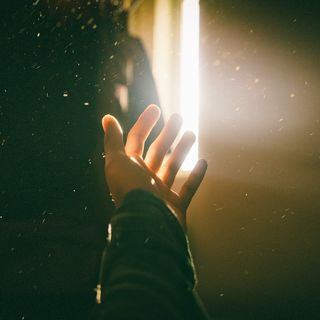LESSONS FOR QUARANTINE FROM THOSE WHO HAVE LIVED IN WAR ZONES

By: couragehw
Categories:
LESSONS FOR QUARANTINE FROM THOSE WHO HAVE LIVED IN WAR ZONES
APRIL 16, 2020
The COVID-19 pandemic and lessons learned from those who have been displaced.
By: Nahid Fattahi
Posted Apr 15, 2020

This shall pass tooSource: Dyu-Ha/Unsplash
Those of us who have lived in war zones or were displaced because of war are not inexperienced with quarantine and living in crisis. Many of us had to search for particles of courage and hope to live through yet another day of hopelessness and despair. Nevertheless, all those hardships have also taught us a lesson or two and we have a few tips to share with you during this crisis.
1. Living in a war zone meant that we were often marginalized, and our humanity ignored. So, to fight back we learned to either be resilient or struggle for the rest of our lives. You too can use this time to become more resilient. Resilience is not just your ability to bounce back, but also your capacity to adapt in the face of challenging circumstances, while maintaining a stable mental wellbeing. Learn to lean into discomfort while looking on the bright side. Accept painful situations and face them head-on, trusting that you can get through them and build your resilience one particle at a time.
2. Living in a war zone or under a totalitarian government has taught us to appreciate the importance of freedom. War survivors lived in conditions in which freedom is only a fancy word they got to read about in books. Thus, try to cherish any freedom you have you left, even if it is a short walk in your neighborhood or talking freely to a friend on the phone. Or the freedom of being able to voice your opinions and concerns on social media without the fear of being prosecuted.
3. Living in a war zone or ending up in refugee camps taught us to greatly appreciate life and to have gratitude for all that we have. Some of us have lost family members or years of education to war, some of us have had to flee our homes and live as refugees in countries that were unwelcoming, but all of those years of adversities have taught us one simple lesson: Appreciate life. So, I invite you to look at everything that you do have, like the food on your table, the roof over your head, running water, electricity, a phone, gadgets, and every little thing that makes your daily living easier.
4. Living in a war zone has taught us to appreciate the importance of family, friends, and neighbors. We did not know if we would be able to see our family members again once they left home. Every goodbye could have not been followed by a hello, and so we learned to say our goodbyes more consciously and our hellos more happily, but most importantly, we learned to appreciate the moments we spent together greatly. Use this time to bond with your family. If you have children, talk to them and ask them to tell you about how they feel, their fears and their hopes. Use this time to focus on family time, and to call your friends and neighbors. Take this time to let your loved ones know that you care about them.
5. Living in a war zone has taught us to extend a helping hand and to ask for help. We have seen the brutality of human beings. We have endured pain, and maybe because of that, we understand what pain and disparity are. Extend a helping hand purposefully in these hard times. Ask your community, friends, and family how you can help them. And if you can afford it, be generous with your helping hand. Some might just need that, knowing you are there if they need you.6. Living in a war zone means enduring tragedies, so we learned to also enjoy life, to take care of ourselves, to laugh, to listen to music, to dance, and if there was an opportunity, to party. We learned to make the best out of, at times, nothing. Use this time to have more fun. Make your meals mindfully, put on some music and dance, watch comedy shows and laugh a little. And practice meditation to stay in the present moment.
We all can learn a lesson or two from each other, but those of us who have lived in war zones or have been displaced because of war have learned a great deal about life. And the most important perspective we have gained was stated well in a poem eight centuries ago by the great Persian poet Saadi:
“The children of Adam are limbs of each other,
Having been created of one essence.
When the calamity of time affects one limb
The other limbs cannot remain at rest.
If you have no sympathy for the troubles of others,
You are unworthy to be called by the name of a Human”
Ultimately, we all share the pain of this crisis together. Despite our socioeconomic status, cultural, ethnic, and religious backgrounds, we are all at war with one enemy. Let us become kinder to ourselves and to one another. We must become more human than ever before.
